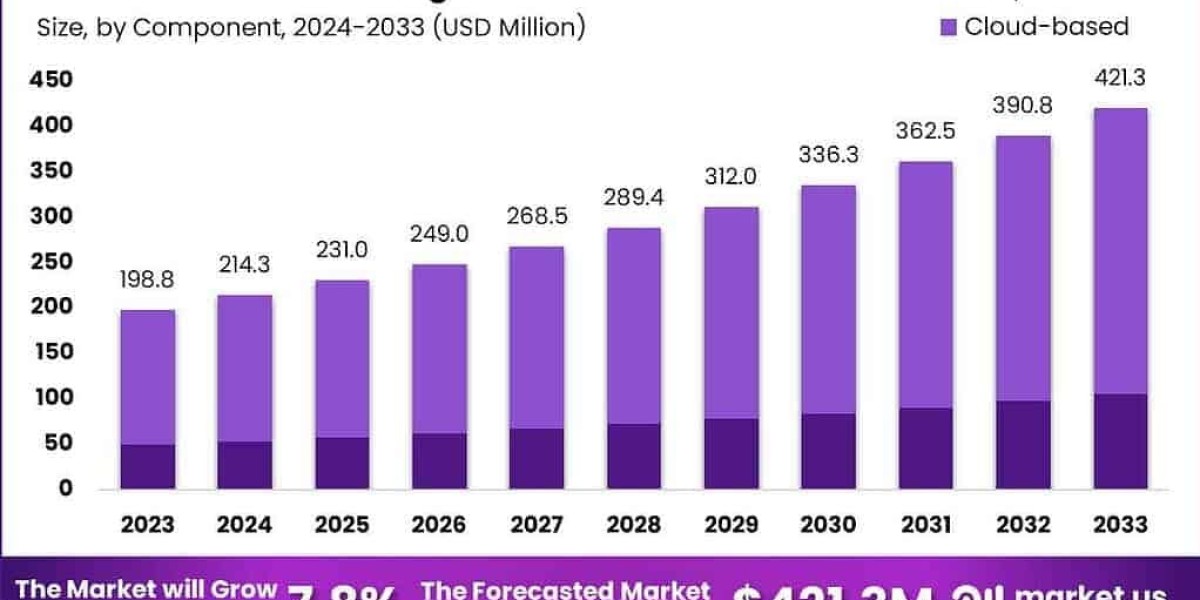The global Child Care Management Software (CCMS) market is projected to reach USD 421.3 billion by 2033 from USD 198.8 billion in 2023, expanding at a CAGR of 7.8%. This growth is driven by increasing digitization in early childhood education, rising demand for administrative efficiency, and heightened focus on child safety and development tracking. The software supports streamlined operations for daycares, preschools, and learning centers, reflecting growing market adoption. High demand from both developed and emerging regions is influencing substantial investments, reshaping the operational dynamics of child care services across the globe.
Key Takeaways:
Market size (2023): USD 198.8 billion
Market size (2033): USD 421.3 billion
CAGR (2023–2033): 7.8%
Increased demand due to digital transformation in child care
Rising investments in education-tech innovations
Cloud-based solutions dominating software preference
Automation reduces operational workload
Demand from North America and Asia-Pacific is robust
Dominant Market Position:
The North American region holds a dominant position due to high adoption of digital tools in education and strong regulatory frameworks emphasizing early childhood education. Urbanization and dual-income households have also intensified demand for efficient childcare solutions. Meanwhile, the Asia-Pacific region is emerging rapidly due to technological advancement, government subsidies, and increasing literacy rates. Enterprise-level childcare providers are also contributing to market consolidation, with several providers expanding globally and integrating advanced analytics to cater to growing user expectations for customized and secure childcare management services.
Technology Perspective:
Technological advancements such as cloud computing, AI-based attendance tracking, digital billing, and real-time parent engagement platforms are shaping the CCMS landscape. Mobile-first applications, data security features, and integration with third-party tools like payroll and learning modules provide holistic functionality. AI and analytics enable personalized child progress reports and predictive resource planning, while APIs ensure interoperability across systems. Additionally, cloud-based deployments offer scalability, affordability, and ease of access, especially for small to medium-sized childcare institutions. The sector is moving toward mobile-based, IoT-connected smart childcare centers.
Dynamic Landscape:
The competitive environment is shaped by rapid innovation, strategic partnerships, SaaS-model dominance, and growing customization needs from institutions seeking flexible, scalable solutions.
Drivers, Restraints, Opportunities, Challenges:
Drivers include digitalization in early education and increased parental engagement.
Restraints include high upfront costs for small institutions.
Opportunities lie in AI-driven personalized child development tools.
Challenges involve data privacy compliance and training for staff.
Use Cases:
Real-time attendance tracking
Automated billing and invoicing
Parent-teacher communication portals
Child development progress dashboards
Staff scheduling and payroll management
Compliance reporting and licensing assistance
Key Players Analysis:
The market is highly fragmented yet competitive, with providers focusing on product innovation, cloud migration, and integration capabilities. Many firms are targeting small and medium daycare providers with modular and subscription-based solutions. Several vendors are forming alliances with educational institutions and government bodies to expand their reach. Customizable platforms are being increasingly favored, and frequent updates enhance system capabilities. With the rising demand for mobile-first platforms and secure data handling, vendors are investing heavily in mobile app development and cybersecurity infrastructure to remain competitive.
Recent Developments:
Introduction of AI-powered child progress analytics
Mobile app integrations for instant parental communication
Partnerships with edtech companies for holistic platforms
Launch of freemium SaaS models for startups
Enhanced data encryption features for compliance
Conclusion:
The Child Care Management Software market is undergoing a digital revolution, empowering early education providers with smarter administrative and developmental tools. With strong growth projections and a shift toward cloud and mobile technologies, the sector is primed for transformation. Stakeholders focusing on innovation, security, and accessibility will drive the next phase of this market’s evolution.






